Samsung Galaxy S6 (Exynos 7420) vs HTC One M9 (Snapdragon 810) vs iPhone 6 (Apple A8) performance review
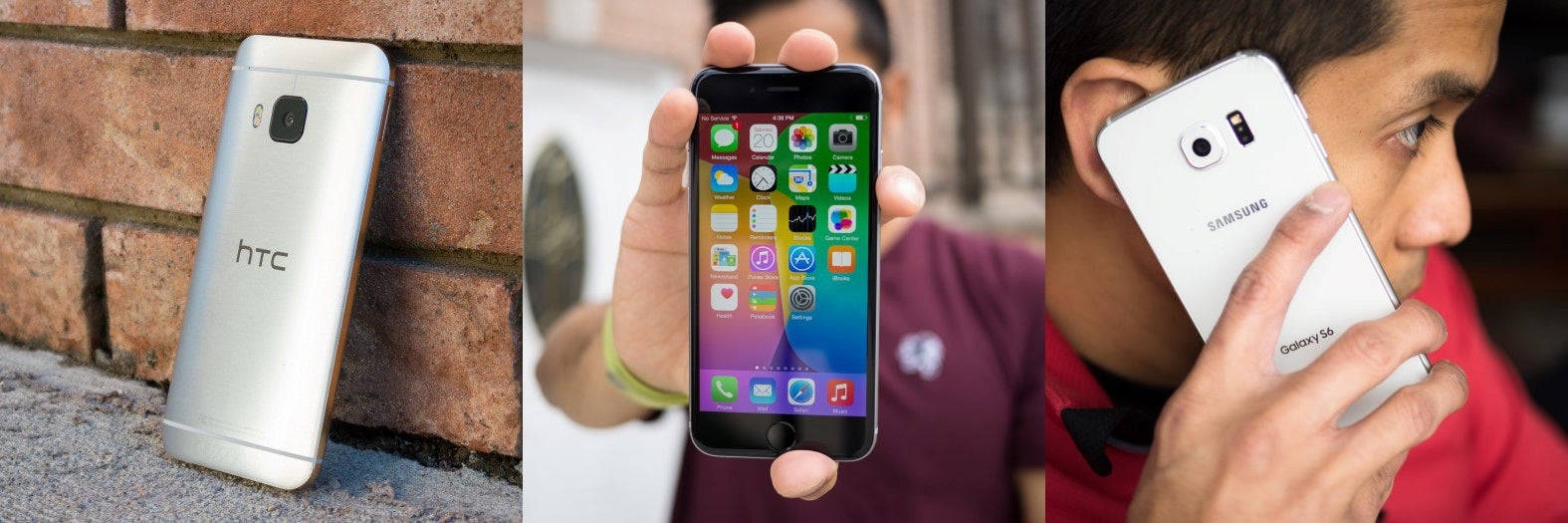
Three phones will battle for the attention of most users throughout most of 2015: the Apple iPhone 6 with its record-beating sales, the completely reimagined Samsung Galaxy S6, and the stylish HTC One M9.
Now that Samsung has finally realized the importance of designed and has released the Galaxy S6 in a completely overhauled aesthetic, we can finally say there is some sort of parity between flagships this year when it comes to their design appeal.
What are the differences between the three, and which one works best? We take a look at the CPU and GPU performance, as well as the effect they have on battery life in this Galaxy S6 vs One M9 vs iPhone 6 performance review.
Rather than speaking about the system chip on the whole, we take a look first at its one crucial part: the CPU performance. It’s common knowledge that the CPU takes the heavy load in most of daily operations including browsing (surfing Facebook too), while the GPU starts to take that heavy load in parallel operations, most notably games and video encoding. What’s not so common is an understanding of the finer details of single-threaded vs multi-threaded apps, or put in simpler terms: how much having multiple cores helps (or does not help) in different apps.
First, let’s recap the specs, though. The Galaxy S6 runs on an Exynos 7420 SoC with an octa-core big.LITTLE setup consisting of four high-performance Cortex-A57 cores running at up to 2.1GHz, and four Cortex-A53 battery-efficient cores running at up to 1.5GHz. The One M9, on the other hand, sports a Qualcomm Snapdragon 810 with a similar big.LITTLE A57/A53 solution running at 2GHz (A57, slightly underclocked) and 1.5GHz (A53). The iPhone 6 is the odd one here with its Apple A8 chip that features ‘only’ two CPU cores running at ‘only’ 1.4GHz. We’re stressing only since pundits are often quick to accuse Apple for being behind the times, without taking in consideration that the Cyclone v2 cores are both larger in size and complexity, and are able to run at their nominal clock speeds for prolonged periods of time, while the clock speeds in the former two devices are ‘turbo’ clock speeds that cannot be sustained effectively.
With this in mind, let’s turn to the actual benchmark scores, the comment is right below them.
Two things catch the eye the most: one, the iPhone 6 is still the best performing phone when it comes to single-thread performance, and two, the Galaxy S6 is clearly the best-performing Android phone (that comes close to the iPhone 6 in single-core CPU performance). Also, despite the similarity between the CPUs of the Galaxy S6 and the One M9, CPU performance is still noticeably higher on the S6’s Exynos chip.
The biggest improvement in CPU performance is clearly achieved by Samsung: a whopping 50%+ jump in single-core CPU performance. Interestingly, despite both the S6 and M9 using stock Cortex A57 cores, the M9 is outperformed by a hefty margin of more than 18%. It's important to know that HTC has pushed an update to its One M9 just before the launch of the phone, throttling performance of the chip in order to lower down what seemed like very disturbing overheating problems. Recent testing by AnandTech has revealed the full extent of that throttling, and you can see for yourself how the One M9 caps its processor further down with more use.
Now that Samsung has finally realized the importance of designed and has released the Galaxy S6 in a completely overhauled aesthetic, we can finally say there is some sort of parity between flagships this year when it comes to their design appeal.
Gone are the times of all-Snapdragon flagships
However, gone are the times of all-Snapdragon-toting devices, and this year, we have a true diversity of processors: the iPhone 6 touts the Apple A8 SoC, the Galaxy S6 features a Samsung-made Exynos 7420, and the One M9 sports a Snapdragon 810 chip.What are the differences between the three, and which one works best? We take a look at the CPU and GPU performance, as well as the effect they have on battery life in this Galaxy S6 vs One M9 vs iPhone 6 performance review.
CPU
Rather than speaking about the system chip on the whole, we take a look first at its one crucial part: the CPU performance. It’s common knowledge that the CPU takes the heavy load in most of daily operations including browsing (surfing Facebook too), while the GPU starts to take that heavy load in parallel operations, most notably games and video encoding. What’s not so common is an understanding of the finer details of single-threaded vs multi-threaded apps, or put in simpler terms: how much having multiple cores helps (or does not help) in different apps.
No custom cores on the 64-bit Android front yet
There is no simple answer to that: Android handles all UI interactions in the main thread of an app, which alone suggests using at least two threads for the vast majority of apps, but it’s much harder to judge the actual usefulness of an octa-core setup. One educated guess is that most common apps will not reap the benefits of the octa-core chip fully, while some specialized demanding apps and games will do see a boost in performance. Given the elevated importance of single-core performance, when looking at benchmarks, we tend to prioritize the single-core score of devices (without neglecting the multi-core result, naturally). This is an important differentiation because some particular benchmarks like AnTuTu make excellent use of multiple cores, which may not be the case in real-life usage. Rather than looking at synthetic benchmarks, it’s worth keeping an eye on more granular ones that allow better understanding of CPU performance.First, let’s recap the specs, though. The Galaxy S6 runs on an Exynos 7420 SoC with an octa-core big.LITTLE setup consisting of four high-performance Cortex-A57 cores running at up to 2.1GHz, and four Cortex-A53 battery-efficient cores running at up to 1.5GHz. The One M9, on the other hand, sports a Qualcomm Snapdragon 810 with a similar big.LITTLE A57/A53 solution running at 2GHz (A57, slightly underclocked) and 1.5GHz (A53). The iPhone 6 is the odd one here with its Apple A8 chip that features ‘only’ two CPU cores running at ‘only’ 1.4GHz. We’re stressing only since pundits are often quick to accuse Apple for being behind the times, without taking in consideration that the Cyclone v2 cores are both larger in size and complexity, and are able to run at their nominal clock speeds for prolonged periods of time, while the clock speeds in the former two devices are ‘turbo’ clock speeds that cannot be sustained effectively.
Two things catch the eye the most: one, the iPhone 6 is still the best performing phone when it comes to single-thread performance, and two, the Galaxy S6 is clearly the best-performing Android phone (that comes close to the iPhone 6 in single-core CPU performance). Also, despite the similarity between the CPUs of the Galaxy S6 and the One M9, CPU performance is still noticeably higher on the S6’s Exynos chip.
The biggest improvement in CPU performance is clearly achieved by Samsung: a whopping 50%+ jump in single-core CPU performance. Interestingly, despite both the S6 and M9 using stock Cortex A57 cores, the M9 is outperformed by a hefty margin of more than 18%. It's important to know that HTC has pushed an update to its One M9 just before the launch of the phone, throttling performance of the chip in order to lower down what seemed like very disturbing overheating problems. Recent testing by AnandTech has revealed the full extent of that throttling, and you can see for yourself how the One M9 caps its processor further down with more use.
GPU
The next important chapter to overall great performance is the GPU, of course. Taking over in games, a good GPU guarantees that you’ll be able to play the latest titles on your phone with ease, and gives you faster processing speeds in some visually-demanding apps.
First, let’s recap the specs. The Galaxy S6 ships with an ARM Mali-T760 MP8 graphics chip, the HTC One M9 uses the Qualcomm Adreno 430, and finally, the iPhone 6 sports an Imagination Technology PowerVR GX6450.
Before diving in the benchmarks, here also a few remarks are due. First comes the issue of screen resolution. You’ll see on-screen and off-screen benchmark scores (offscreen tests are used to neutralize differences in resolution and equalize all devices to a 1080 x 1920-pixel resolution).
How much is that a factor for games? A higher resolution naturally means an increased load for the GPU, and hence, lower frame rates. How much does game scaling actually affect GPU performance is an open question, but so far indications are that higher resolutions do take a heavy toll on performance. With this in mind, let’s take a look at the actual graphics benchmarks, split in on-screen and off-screen scores.
Effect on battery life
Finally, when speaking about CPU and GPU performance, we're inevitably faced with the question of how performance relates to battery life. With all the countless reports about the Snapdragon 810 overheating, there was reason for worry. Luckily, HTC has pushed an important software update just days before the launch of the One M9, capping its performance, but also securing it from overheating.
In order to see the effect of the new system chips on battery life, we turn to our battery test that has all phones pre-calibrated at 200 nits (a brightness level comfortable for indoor viewing), and running a custom script that simulates typical smartphone use. Keep in mind that the result represent battery life with no off-screen time. Keep in mind that some phones (the iPhone 6, in particular) does a stellar job with stand-by time, and this result is not factored in.
With all this in mind, it's interesting to see that there is a slight regression in battery life on the Galaxy S6 and One M9 (in comparison with their predecessors), while the iPhone 6 is a modest improvement over the iPhone 5s. At the same time, the Galaxy S6 remains the best scoring device in terms of battery life, while the One M9 follows and the iPhone 6 is at the third position. This is an interesting result mostly because the Galaxy S6 has a Quad HD display (which puts an extra strain on battery), while the others have lower resolutions, and yet still, it manages to score above them. It's important to also note that the Exynos 7420 on the Galaxy S6 is manufactured using the most advanced, 14nm process, while the rest are made using less efficient manufacturing processes.
Conclusion
All in all, we're most impressed with the improvements in performance achieved by the Galaxy S6's Exynos 7420 system chip. It is still a runner-up to the iPhone 6 when it comes to the hugely important single-core performance score, but it's getting very close, and with all the improvements to TouchWiz, it no longer feels terribly laggy - quite the opposite.
When it comes to grpahics, though, the Adreno 430 in the One M9 sweeps the floor with its overwhelming advantage over the Mali chip in the S6 and the PowerVR GPU on the iPhone 6 (those two score on par, with the S6 being a bit ahead).
So which of the three should you pick if you're looking for the best performance? None will disappoint in daily use where software optimizations matter a lot (the One M9 is in our subjective view the fastest), and when it comes to gaming it is again the One M9 that pulls ahead. For intense browsing and all other heavier CPU tasks, though, the Galaxy S6 and iPhone 6 stand out.




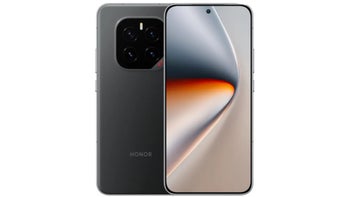
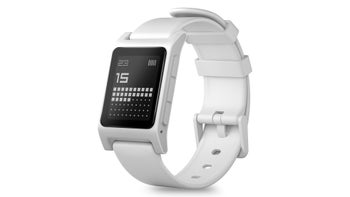
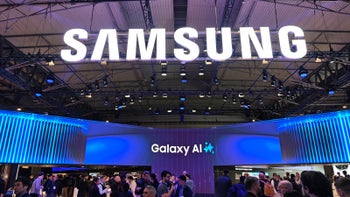
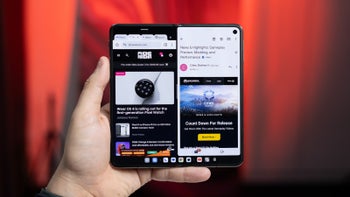

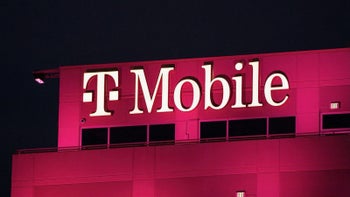
Things that are NOT allowed: